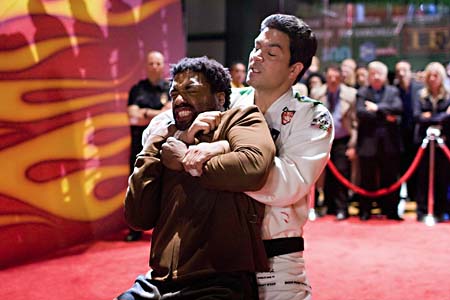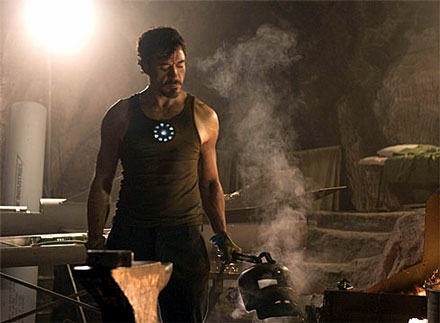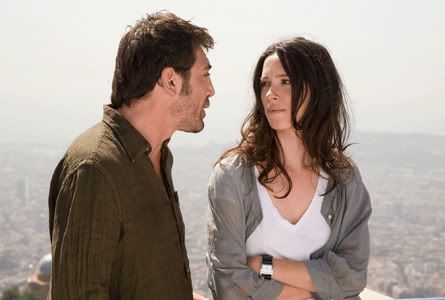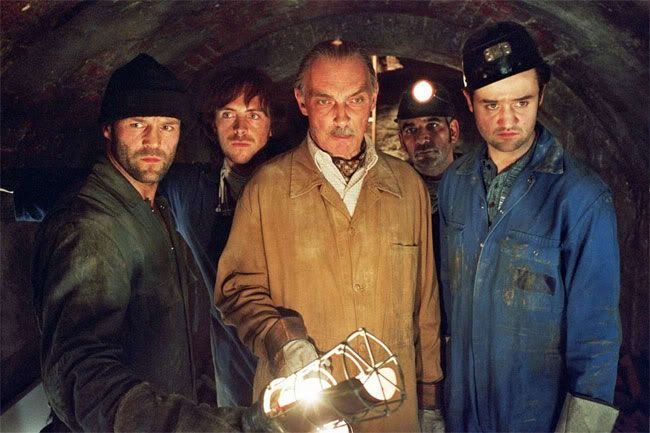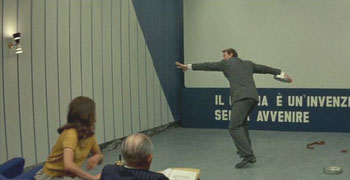
Released in 1951, Strangers on a Train was a rebound from more forgettable films such as Stage Fright and Under Capricorn. Hitchcock wastes no time developing his two title characters with a clever opening: Guy's plain black pants and shoes are contrasted by Bruno's striped slacks and spotted shoes in continuous shots.. Our protagonist is the rather plain, even boring, tennis star played by Farley Granger, who looks like a bit of a young James Stewart stand-in. The owner of the flamboyant wardrobe is Robert Walker's Bruno, who looks uncannily like Robert Mitchum.
The movie quickly becomes an analysis of obsession, led by Walker's powerhouse performance that seems to have in fact influenced Mitchum's in Night of the Hunter. As usual, Hitchcock invents new ways to heighten suspense, including the brilliant use of glasses to reflect an image. However, some of it doesn't quite work: the would-be nail biting tennis match nearly kills the suspense for a while until the climax on one of the best set pieces I've yet see Hitchcock use: a carousel.
Overall, I wouldn't quite put Strangers on a Train up with pictures like The 39 Steps or Shadow of a Doubt but would compare it to the success of The Lady Vanishes. Still, "above average" Hitchcock is better than most directors' magnum opi [I think I made that word up].
8/great


